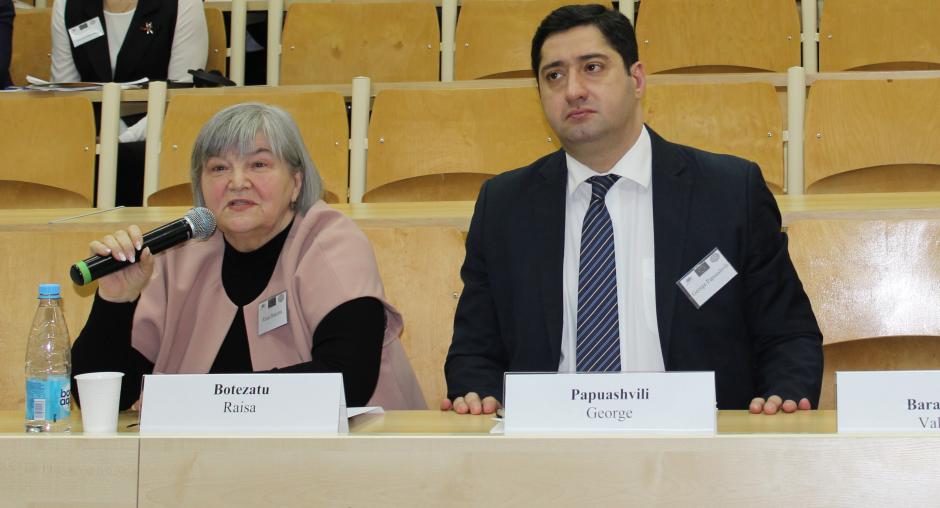Belarusian judges discuss international standards for individualizing criminal responsibility at ODIHR seminar in Minsk

International rule of law standards for the individualization of criminal responsibility were the topic of a seminar organized on 21 March 2019 in Minsk for participants from across Belarus.
The seminar was organized by the OSCE Office for Democratic Institutions and Human Rights (ODIHR) and the Institute for Re-training and Continuing Education of Judges and Personnel of Prosecutor’s Offices, Courts and Justice Institutions (IRCE) at the Belarusian State University. It was the fifth in a series of seminars on rule of law issues co-organized as part of the two-year, European Union-funded project “Promoting Democratization and Human Rights in Belarus”.
The training event involved 34 participants (22 men and 12 women), most of them judges. They learned about domestic and international standards and practice related to the individualization of criminal responsibility – the process through which the investigative and prosecution bodies and the court choose the preventive measure or criminal sanction appropriate to the person and their crime – during the pre-trial, trial and sentencing phases.
“Fundamental principles of criminal justice based on the rule of law include applying criminal sanctions that are commensurate to the offence in each individual case and weighing aggravating and mitigating factors and the circumstances of the offence and the alleged offender ,” said Carolyn Hammer, Rule of Law Officer at ODIHR.
IRCE Professor Aliaksandr Barkou said: “The seminar was dedicated to the discussion of a key issue in the practice of sentencing and applying measures of criminal responsibility – that is, the choice of a sanction that would ensure the achievement of objectives of criminal responsibility while respecting the principle of rule of law, justice and humanism. Participants discussed the issues of restricting the use of punishments in the form of deprivation of liberty and pre-trial detention. Particular attention was paid to considering the convicted person’s character, which is either conducive to or, on the contrary, prevents him or her from reform and resocialization.”
In addition to the training of some 200 legal professionals during thematic seminars, the project’s rule of law activities will also include exchange visits on rule of law and other justice-related issues.
